
David Charles Dolby was a United States Army soldier who received the U.S. military's highest decoration, the Medal of Honor, for his actions in the Vietnam War.
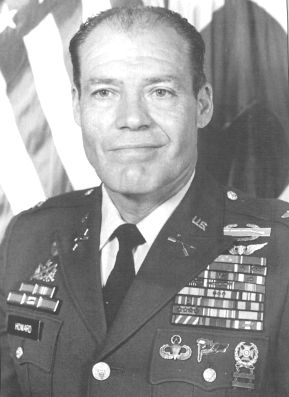
Robert Lewis Howard was the most highly decorated officer of Vietnam United States Army Special Forces and Medal of Honor recipient of the Vietnam War.

Maximo Yabes born in Lodi, California, was a United States Army soldier who posthumously received the Medal of Honor — the United States' highest military decoration — for his actions near Phu Hoa Dong in South Vietnam during the Vietnam War. Yabes distinguished himself when he used his body as a shield to protect others in a bunker, moved two wounded men to a safer position where they could be given medical treatment and destroyed an enemy machine gun position before being mortally wounded.

Puerto Ricans have served as members of the United States Armed Forces and have fought in every major conflict in which the United States has been involved from World War I onward. Many Puerto Ricans, including those of Puerto Rican descent, have distinguished themselves during combat as members of the five branches of the U.S. Military, the Army, Marines, Navy, Air Force and the Coast Guard.
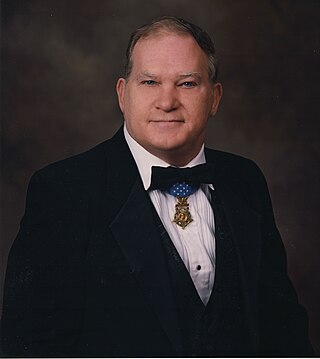
John Franklin Baker Jr. was a United States Army Master Sergeant who served in the Vietnam War and a recipient of the Medal of Honor.

Donald Sidney Skidgel was a United States Army soldier and a recipient of the United States military's highest decoration—the Medal of Honor—for his actions in the Vietnam War.
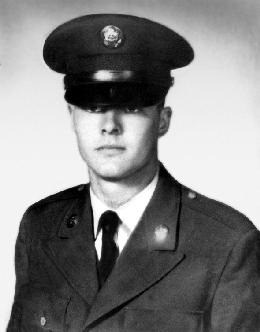
William Wayne Seay was a United States Army soldier and a recipient of the United States military's highest decoration—the Medal of Honor—for his actions in the Vietnam War.

Robert Martin Patterson is a retired United States Army soldier and a recipient of the United States military's highest decoration, the Medal of Honor, for his actions in the Vietnam War.
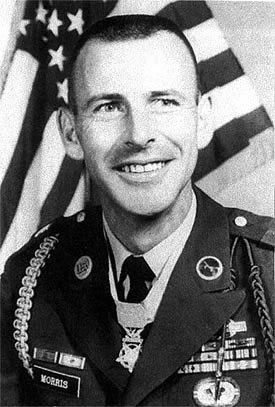
Charles Bedford Morris was a United States Army soldier and a recipient of the United States military's highest decoration—the Medal of Honor—for his actions in the Vietnam War.
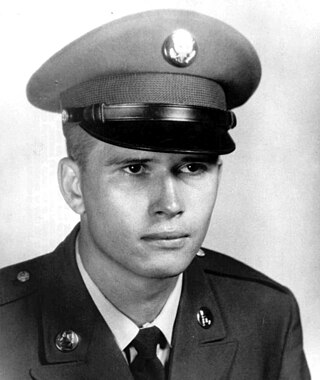
Don Leslie Michael was a United States Army soldier and a recipient of the United States military's highest decoration—the Medal of Honor—for his actions in the Vietnam War.

Ray McKibben was a United States Army soldier and a recipient of the United States military's highest decoration—the Medal of Honor—for his actions in the Vietnam War.

Leonard Bert Keller was a United States Army soldier and a recipient of the United States military's highest decoration—the Medal of Honor—for his actions in the Vietnam War.

Bruce Alan Grandstaff was a United States Army soldier and a recipient of the United States military's highest decoration—the Medal of Honor—for his actions in the Vietnam War.

Michael Fleming Folland was a United States Army soldier and a recipient of the United States military's highest decoration—the Medal of Honor—for his actions in the Vietnam War.

Robert James Miller was a United States Army Special Forces soldier who posthumously received the Medal of Honor for his actions during the War in Afghanistan.

Ty Michael Carter is a retired United States Army staff sergeant and a Medal of Honor recipient. He was awarded the United States Armed Forces' highest military honor for his actions during the 2009 Battle of Kamdesh in Afghanistan. Carter left active duty in September 2014.

Melvin Morris is a United States Army veteran of the Vietnam War, a Special Forces soldier, and a recipient of the Medal of Honor.

Félix Modesto Conde Falcón was a United States Army soldier and a recipient of the Medal of Honor. Born in Juncos, Puerto Rico, he joined the United States Army in April 1963 in Chicago, Illinois. He was killed during combat operations in Ap Tan Hoa, South Vietnam, on April 4, 1969. He was posthumously awarded the Medal of Honor by President Barack Obama in a March 18, 2014 ceremony in the White House. The award comes through the Defense Authorization Act which called for a review of Jewish American and Hispanic American veterans from World War II, the Korean War and the Vietnam War to ensure that no prejudice was shown to those deserving the Medal of Honor.
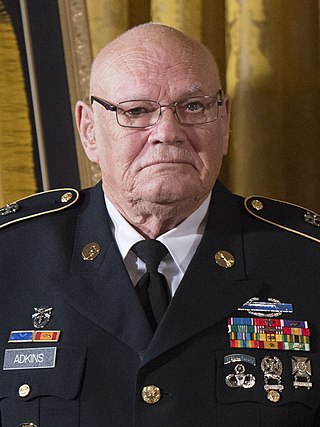
Bennie Gene Adkins was a United States Army soldier and recipient of the U.S. military's highest decoration, the Medal of Honor, for his actions during the Vietnam War. In March 1966 Adkins distinguished himself during a 38-hour close-combat battle against North Vietnamese Army forces during the Battle of A Shau. At the time of the cited action, Adkins was a sergeant first class serving as an Intelligence Sergeant with Detachment A-102, 5th Special Forces Group, 1st Special Forces.
















